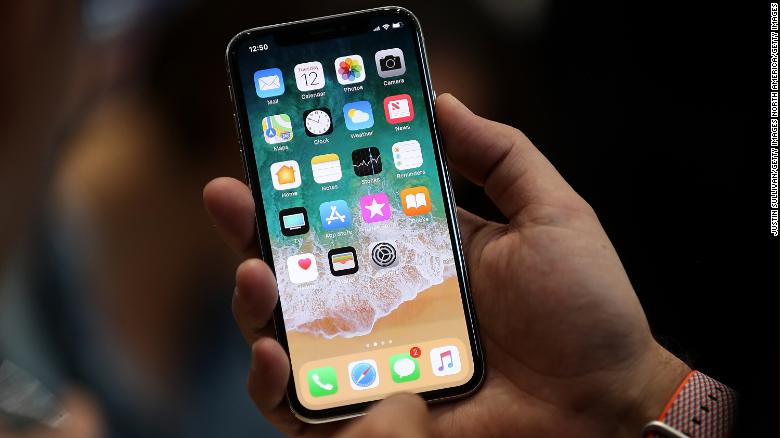New York (CNN Business)For years, Wall Street watched in awe as Apple's iPhone appeared to defy gravity. Now investors are wondering just how much iPhone sales could shrink.
Apple (AAPL) is set to report its holiday quarter earnings results after the bell on Tuesday. The report comes less than a month after the company issued a rare warning to its investors.
In a letter to shareholders on January 2, Apple CEO Tim Cook said the company would miss its revenue target for the final quarter of 2018 by a wide margin -- as much as $9 billion below the high end of its earlier guidance -- because of weak iPhone sales. Cook said the miss was primarily because of a slowdown in China.
The announcement shook Apple's stock and the overall market, reigniting fears that even corporate giants may be weighed down by broader challenges in the global economy. That includes the trade war between the United States and China.
The China concern has only grown in recent days. On Monday, chipmaker Nvidia (NVDA) cut its sales outlook for the fourth quarter, citing "deteriorating macroeconomic conditions, particularly in China." Last week, Intel's (INTC) CEO also noted that "trade and macro concerns, especially in China, have intensified."
With Apple in particular, more may be at play than China's economic slowdown. Some industry watchers point the finger at Apple's cheaper smartphone competition in China.
"A miss this big suggests more than just economic weakness was to blame, with stiff competition from local rivals such as Huawei, Xiaomi, Oppo and Vivo likely playing a big role," Dan Morgan, senior portfolio manager at Synovus Trust, wrote in an investor note Monday.
The consensus estimate among analysts is for Apple to report earnings per share of $4.17 on revenue of $84 billion, in line with the company's updated sales forecast, but well below the $88.3 billion it posted in the same quarter a year ago. Investors will also be scrutinizing Apple's forecast for the upcoming March quarter for signs of pain ahead.
Even before Cook issued the warning this month, there was cause for concern.
On a conference call with analysts for its last earnings report in November, Apple announced it would stop reporting how many iPhones, iPads and Macs it sells each quarter. The move sparked fears that Apple expects iPhone shipments to begin declining.
But this is essentially the new story for Apple. These days, it's less about how many more iPhones the company can sell from one year to the next than how much additional revenue it can squeeze out of its flagship product through price hikes and the growth of supplementary services like Apple Pay, iCloud and Apple Music subscriptions.
In light of the warning about iPhone sales in China, however, some analysts now expect Apple to rethink the pricing part of that strategy.
Daniel Ives, an analyst with Wedbush, says Apple is "facing a code red situation in China" as it confronts "lower priced competition from all directions." As a result, he says, "Apple needs to make sure that over the next few quarters they do not lose any current iPhone customers and thus speaks to the more significant price reductions on the way."
Apple stock has mostly rebounded from the January 2 letter, but it remains down about 30% from the last earnings report.






















